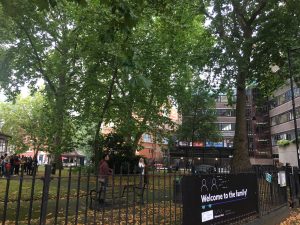Hi, it’s been a while! I received a few messages on LinkedIn after my last article here, and I have to say I am really excited that some of you will be starting your postgraduate studies at City this year!
Unfortunately, this will be my last post on the blog as I have come to the end of my time studying at City. I thought about how best to wrap up, so I’d like to talk briefly about my final days here at the University and my tips for writing your dissertation.
It’s been an amazing year – a year of learning, socialising, hard work, giving back, self-awareness and so much more. Most of my final days have been spent in the Tait Building. What was I doing there? Writing my final thesis! Many postgraduate courses require you to submit a dissertation at the end of the year, which is worth four times your average course unit. See below my three major tips for when the time comes to write yours (make sure you have your pen and paper ready!)
1. Start on time!
Almost everyone knows this, but I can assure you only a few people practice it. I can’t stress this point enough because I made sure to start extremely early, but still ended up working until the last day proof-reading it. Obviously, your workload might be lighter than mine, but I was able to use the spare time I saved to triple-check my work.
2. Pick a topic you’re interested in!
Some people already know the topic they’d like to research from the moment they start their course. If that’s you, great! If not, don’t be weighed down by this. During your course year, look out for the modules you find really interesting and write down areas you’d like to potentially explore. I had no topic when I started out, but discovered my area of interest during the year, which was information visualisation.
3. Set personal deadlines!
The project team will release a timetable closer to the start of your dissertation. This contains the major deadlines set by the School. I’d advise you to take a step further by setting your own deadlines. Don’t set impossible targets, your goals must be SMART. What this does is to motivate you when the going gets tough. This is because you might get to the point where you’re just really tired of staring at your laptop. Your goals will keep you going at this point.
I hope these tips will come in handy. As for my plans after finishing my postgraduate course? Consulting! I’ll be starting a job in consulting soon, where I can apply all the amazing skills I’ve learnt at City.
Please comment below if you have any questions, and I wish you all the best!




